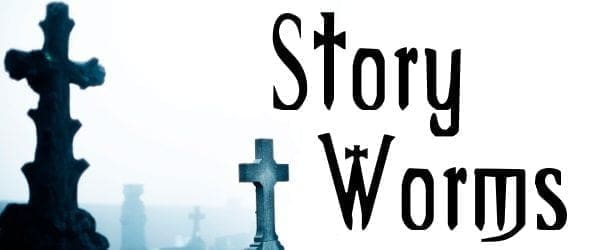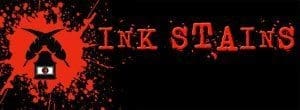
 Eeva Lancaster is one heck of a busy woman. She’s a book designer, an editor, and non-fiction author with three books to her name. She owns the author community Alliance of Self Published Authors. and it was this community that gave her a glimpse of the issues faced by self published authors. The result of this insight was The Book Khaleesi; the site through which she offers a huge range of services for authors. When she’s not working, you can find her snorkeling, indulging in TV series marathons, or gardening.
Eeva Lancaster is one heck of a busy woman. She’s a book designer, an editor, and non-fiction author with three books to her name. She owns the author community Alliance of Self Published Authors. and it was this community that gave her a glimpse of the issues faced by self published authors. The result of this insight was The Book Khaleesi; the site through which she offers a huge range of services for authors. When she’s not working, you can find her snorkeling, indulging in TV series marathons, or gardening.
Give us a little introduction to the services you offer, and what your background is.
The Book Khaleesi is a one-stop-shop for Authors. There are a lot of author services websites around, but I specifically tailored my site to cater to Indies. Meaning, the services are affordable, but high-quality.
I’m a top-rated freelancer on Upwork. Working with author clients there gave me the idea to venture into the self publishing industry. I began as a ghostwriter before I started publishing my own books. The need for a site like The Book Khaleesi became evident to me as I got to know more indie authors on my Google+ community, The Alliance of Self Published Authors. I realized that many awesome writers are totally clueless about what they need to do for their manuscript before they publish. The result is a great story with poor packaging. Totally understandable. They’re writers, not designers or marketers. And many seek help, but if you look at the cost of most services, they’re pretty steep. And those that are cheap are crappy. Enter The Book Khaleesi. It’s like Goldilock’s chair. Not too expensive and not too cheap to be low quality. Just right on an indie author’s budget.
I personally oversee every single project that lands on our plate. I have to say that I micro-manage my team and check their final ouput before I send it to clients. I take pride in my work, and share in an author’s joy when they publish a high quality book I helped create.
When creating a book cover for a specific genre, such as horror, what are the most important things to consider?
Covers should let the readers know at one glance what the book is about. You can put one symbol on the cover and it works, as long as it conveys the core of the story.
And what’s the most common mistake indie authors make with their covers?
Many authors make the mistake of cramming their cover with images, but that just confuses and makes the cover look too busy. Simplicity and a kick-ass Title Font is enough to hook a reader. And a lot more make the mistake of doing it themselves, even though they’re not designers. I’m all for DIY – but some genres, like fantasy and horror, needs to have a cover designed by a professional. Otherwise, it looks… awkward. And hurts the book.
How do you decide if an editing client is a good match for you, and how do you work with them throughout the process?
I love to work with authors who leave their manuscripts with me and trust that I’ll do the best I can for it. I know it’s hard. It’s their baby. But if you get an editor, there has to be trust. In the past, well, even today, editors charged a HUGE amount of money to tell authors what they did wrong. You did not write this correctly, change it. Rewrite it. Many authors are afraid of this, the criticism, the rewrites, the back and forth, the cost. So most of the time, they’ll just skip hiring an editor.
Nowadays, there are good freelance editors who are affordable, and they will rewrite themselves when needed. Rare, but they’re there. I personally edit this way. I’m not a writing coach. I will edit the manuscript directly on Word to make it tighter, better, while retaining the writer’s voice. The author can then approve or disapprove my edits. I don’t believe in telling an author to rewrite. If they have a certain writing style, it will just come out the same way. If they’re wordy for example, or too descriptive. All they need is help in polishing the manuscript to make it tighter and more readable.
How can authors find the right editor for them?
The important thing is to find an editor who will care about the work. Cause it takes a lot of time to edit line by line. If an editor doesn’t care, what’s stopping them from just skimming and charging you for it? And my advise is to NOT rush the editor. Please. We’re self pubs. We determine the timelines. Let the editor work on the manuscript until it’s READY. The manuscript is everything.
And always credit your editor. Many authors don’t even give credit to the people who helped create their book. It’s not something to be ashamed of. Even Stephen King has an editor!
How can social media help authors, and what’s the biggest mistake to avoid?
Social media helps us reach our audience, our potential readers. It doesn’t guarantee sales but increases the chances of it. Many authors post on social media and watch their sales closely. When the needle doesn’t move, they get frustrated and stop promoting. Social media is just ONE part of the author platform, which all self pubs must build. eBook readers are online, and we need to be there and expose ourselves, promote ourselves and our work. Who will know about the book if we don’t promote? If we’re not searchable?
Sharing a link to the book is NOT promoting. It will just get buried, and is a waste of time. What we need is to establish presence and build a network. We need to be consistent and connect with people. 2 hours a day of consistent promotion is enough, and you should be saying more than just BUY MY BOOK. There are apps like Hootsuite which can help automate our campaigns so it doesn’t take up too much of our time. But sadly, a lot of authors can’t be bothered to learn these things. It’s just easier to say it doesn’t work. In the beginning, as you build your network, it will take up a lot of time. Just like any business.
Do you think women have a hard time in a genre like horror?
As a voracious reader, it never mattered to me if a writer is a man or a woman. I get how this concerns some writers, that’s why they use pen names with initials to hide their gender. But as a reader, has the gender of the writer ever been a factor when you chose books? In this context, in choosing a book, the writer’s gender is irrelevant. The story matters. The blurb matters. The cover matters. These are what convinces readers to buy.
What’s your advice to authors in the self publishing industry?
If you enter this industry, if you want your book to be read, you have to approach publishing as a business. Because that’s what it is. Self publishing allows us to release our work to the public easily, but it also means that we are personally accountable for the final product – the book. We have a responsibility to ensure that the book meets publishing standards. We are liable to our readers. Learn not only how to improve your craft, but also how to produce it and sell it. Study. Experiment. Stand out from the crowd. Writing a book is only the beginning.
Find out more at www.eevalancaster.com and www.thebookkhaleesi.com




 Eeva Lancaster is one heck of a busy woman. She’s a book designer, an editor, and non-fiction author with three books to her name. She owns the author community
Eeva Lancaster is one heck of a busy woman. She’s a book designer, an editor, and non-fiction author with three books to her name. She owns the author community 






